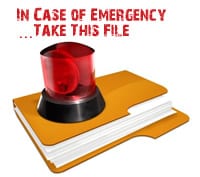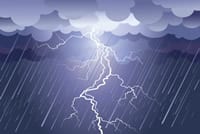 There are other types of insurance you need. If you own or lease a car, you need auto insurance. If you own a home / condo, you need homeowner insurance. If you rent an apartment, you need renter’s insurance. With what is going on in the country (floods, wildfires, mudslides etc.) Make a plan to have your needs assessed so that you’re covered for anything that may happen. #JillRussoFoster #FinancialLiteracyMonth
There are other types of insurance you need. If you own or lease a car, you need auto insurance. If you own a home / condo, you need homeowner insurance. If you rent an apartment, you need renter’s insurance. With what is going on in the country (floods, wildfires, mudslides etc.) Make a plan to have your needs assessed so that you’re covered for anything that may happen. #JillRussoFoster #FinancialLiteracyMonth
Are you ready if disaster happens?
We are all devastated with what is going on with these life emergencies: the wildfires in California, the flooding in North Carolina, the extreme cold in the northeast.
Are you ready if an emergency happens in your town? What do you take with you if you need to evacuate? How quickly can you get these items together? Personally, I like to think I am an organized person. I keep most of my documents on my computer. But I do have some important paper files. I am not sure I would be able to grab everything I need in minutes.
Here is a list from Ready.gov to get you started about what you need to take with you if you need to leave your home.
Are Your Prepared?
2020 has been filled with challenges – COVID 19, wildfires, hurricanes, tornadoes and more. What will come next? Are you ready for whatever comes your way?
Are you prepared for a fire? Several months back, the home next to us had a fire and we were talking to the firemen about many things. We discussed an emergency action plan. We talked about several things that we needed to be prepared:
- Carbon monoxide / smoke detectors in the home
- Escape plan for evacuation
- Meeting place to gather outside the home
We personally were fine with #1 and #2 but had not considered #3. We have wired carbon and smoke detectors in our home and just replaced them this summer. When was the last time you replaced yours? Hardwired detectors need to be replaced every 10 years. For battery operated ones, when was the last time you tested them and replaced the batteries? Please check into this for your own well-being,
The fireman suggested the meeting place for us to be across the street on the neighbor’s porch. That way everyone could meet and know the others are safe.
How well are you prepared for a disaster? Take the time to be prepared if disaster strikes in your neighborhood.
If you have to evaluate your home in minutes, what do you need to do and bring with you? You will need food, water, clothing, medicine, important papers and more if you have pet(s). Be prepared. Here are several lists from Ready.gov to help you prepare all different types of disaster kit.
Prep Your Home For Winter
It’s time to get your home ready for the upcoming winter months. I’m not sure we will be as lucky with winter as last year, with only one minimal storm here in CT.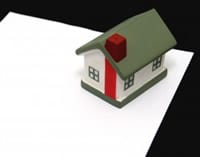
Here are some things that we do at our house:
1. Get all the patio furniture cleaned and put inside if possible. We have a lot – and most comes inside – but there are a few pieces that are too big and heavy. For the pieces that stay out, we put those orange cones atop the table and cover with patio furniture covers. This prevents the water from puddling up. Make sure to secure the covers tightly.
2. Turn off the outside water and drain the lines. You don’t want to have to call a plumber in the middle of winter to fix a frozen line or burst pipe. Remember to bring in the outside garden hoses once you have drained them.
3. Clean those gutters before you have problems. Scoop out the debris from inside (even if you have gutter guards), so that the water can flow easily. Remember to clean out the down spouts too.
4. While you are on your roof… Check for leaks that might need fixing, cracks, and moss growing in the roof (not a good thing as moss holds moisture and that can mean rot). Don’t forget to look around the chimney. All these could become a major problem as we get into winter. As I have told you, it’s easier to fix a small issue now rather than a major issue later. You can either do this yourself or call a professional for help. While you are checking the roof, do any trees need to be trimmed? Now is a good time to do this too.
5. Get your heating systems tuned up and serviced before winter to make sure it’s in working order. There is nothing worse than waking up to no heat on a cold winter morning.
6. Caulk around the windows to seal up any drafts. You don’t want leaky, drafty windows sucking the heat outdoors. You should caulk every few years as preventative maintenance. Don’t forget to remove window air conditioners, as they create drafts.
7. Because winter storms can mean loss of electricity… You will want to check up on your emergency supplies – lanterns, batteries, flashlights, battery powered radio, warm blankets, non-perishable food with a manual can opener, bottled water, portable power chargesrs and matches if you want to cook on the barbecue grill.
It’s much better to prepare ahead of time and do little projects now while the weather is nice. You don’t want to deal with emergency repairs in the winter.
Things To Do Around Your Home
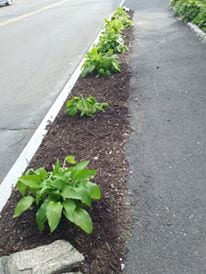 This year has been unlike any other year. With the stay at home restrictions, we personally have been doing more around the home. As a home owner, you know that there is always a project or two on the horizon.
This year has been unlike any other year. With the stay at home restrictions, we personally have been doing more around the home. As a home owner, you know that there is always a project or two on the horizon.
We have replaced some of the grassy area of or front yard with hosta plants, creating a nicer curb appeal and less lawn to mow. We have moved and replaced a gate. By moving the gate, we have a better sight-line. And then there is the usual spring clean up, cleaning the gutters, trimming trees and shrubs, power washing the house and more. We are ahead of schedule over prior years and good weather, but still more to do.
Here are some suggestions for your project list from AARP.
Ways To Lower Your Heating Bill In The Winter
It’s winter here in the northeast, but you wouldn’t know it by mother nature. The greater New York City area ended up with the tenth warmest January on record. Personally, we had one snow storm and few days close to 60. But there is still February, March and maybe April to get some winter cold, snowy weather. 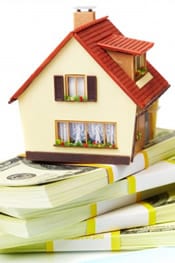
Here are some tips to save on your heating bill:
- Can you lower your thermostat? You can do this all the time or certain times of the day. For certain times, think about your schedule – Can you lower it when you are out and no one is home? At night when you are in bed?
- Do you have a fireplace(s)? If the answer is yes, is your damper closed when your fireplace isn’t in use? This can let cold air into your home (and warm air escape). Remember to open the damper before you start a fire.
- You know how nice it can feel with the sun shinning in on a bright sunny day. It’s a favorite for our dog to lay down inside in the sun. Well that’s really great in the day, but what about the night? Close your blind / drapes to keep the cold air out. You can lose as much as 10% of your room’s heat during the night.
- Check for drafts. Yes, it’s winter but there are so many drafty spots on the inside of your home that you can fix from the inside. Think windows and doors (sealing unused windows with plastic film), electrical / cable outlets (outlet sealers), and check around your pipes (spray foam insulation).
These are some of the things that we do around our home to keep pour heating bill as low as possible. There is more to do outside, before the weather gets cold. Check out this past newsletter with those tips.
Getting Your Home Ready
Yes, I have to admit it, summer is winding down. While I love my long warm summer beach days here in Connecticut, I do love Fall. The cool crisp nights and the beautiful colors of the turning leaves. On to the part that always comes to my mind, what has to be done as Fall approaches and before the onset of winter to prepare our home.
Here are some things that we do at our house:
1. Get all the patio furniture cleaned and put inside if possible. We have a lot – and most comes inside – but there are a few pieces that are too big and heavy. For the pieces that stay out, we put those orange cones atop the table and cover with patio furniture covers. This prevents the water from puddling up. Make sure to secure the covers tightly.
2. Turn off the outside water and drain the lines. You don’t want to have to call a plumber in the middle of winter to fix a frozen line. Remember to bring in the outside garden hoses once you have drained them.
3. Clean those gutters before you have problems. Scoop out the debris from inside (even if you have gutter guards), so that the water can flow easily. Remember to clean out the down spouts too.
4. While you are on your roof… Check for leaks that might need fixing, cracks, and moss growing in the roof (not a good thing as moss holds moisture and that can mean rot). Don’t forget to look around the chimney. All these could become a major problem as we get into winter. As I have told you, it’s easier to fix a small issue now rather than a major issue later. You can either do this yourself or call a professional for help.
5. Get your heating systems tuned up and serviced before winter to make sure it’s in working order. There is nothing worse than waking up to no heat on a cold winter morning.
6. Caulk around the windows to seal up any drafts. You don’t want leaky, drafty windows sucking the heat outdoors. You should caulk every few years as preventative maintenance.
7. Because winter storms can mean loss of electricity… You will want to check up on your emergency supplies – lanterns, batteries, flashlights, battery powered radio, warm blankets, non-perishable food with a manual can opener, bottled water, and matches if you want to cook on the barbecue grill.
For more ideas, here’s a helpful list from The Hartford insurance for getting your home ready for winter.
It’s much better to prepare ahead of time and do little projects now while the weather is nice. You don’t want to deal with emergency repairs in the winter.
Getting Ready For Storms / Winter
 I understand that it’s summer. I am a beach person and want to get in as much beach time as possible. In addition to that, it’s time to get your home ready for the upcoming storms / winter months. So far this summer we have lost power twice – once on a hot humid sunny day and the other in a rain storm. There is nothing worse, than not being ready.
I understand that it’s summer. I am a beach person and want to get in as much beach time as possible. In addition to that, it’s time to get your home ready for the upcoming storms / winter months. So far this summer we have lost power twice – once on a hot humid sunny day and the other in a rain storm. There is nothing worse, than not being ready.
Here are some things that we do at our house:
1. Get all the patio furniture cleaned and put inside if possible. We have a lot – and most comes inside – but there are a few pieces that are too big and heavy. For the pieces that stay out, we put those orange cones atop the table and cover with patio furniture covers. This prevents the water from puddling up and having mosquitoes breed in standing water. Make sure to secure the covers tightly.
2. Turn off the outside water and drain the lines. You don’t want to have to call a plumber in the middle of winter to fix a frozen line. Remember to bring in the outside garden hoses once you have drained them.
3. Clean those gutters before you have problems. Scoop out the debris from inside (even if you have gutter guards), so that the water can flow easily. Remember to clean out the down spouts too. YOu’ll need to do this after the leaves come down to ensure that they are clean before the winter season is here.
4. While you are on your roof… Check for leaks that might need fixing, cracks, and moss growing in the roof (not a good thing as moss holds moisture and that can mean rot). Don’t forget to look around the chimney. All these could become a major problem as we get into winter. As I have told you, it’s easier to fix a small issue now rather than a major issue later. You can either do this yourself or call a professional for help. We have plans for next month to have our roof replaced. Owning a home means planning for maintenance projects.
5. Get your heating systems tuned up and serviced before winter to make sure it’s in working order. There is nothing worse than waking up to no heat on a cold winter morning. Personally, this is one service plan we purchase and it includes a cleaning.
6. Caulk around the windows to seal up any drafts. You don’t want leaky, drafty windows sucking the heat outdoors. You should caulk every few years as preventative maintenance.
7. Because winter storms can mean loss of electricity… You will want to check up on your emergency supplies – lanterns, batteries, flashlights, battery powered radio, warm blankets, non-perishable food with a manual can opener, bottled water, and matches if you want to cook on the barbecue grill. This is something that you could need year round.
It’s much better to prepare ahead of time and do little projects now while the weather is nice. You don’t want to deal with emergency repairs in the winter.
Are You Ready For the Next Disaster?
 It seems like every time I see the news, there is another weather disaster. From hurricane damage that takes years to rebuild, to flooding that wipes out cities, to fires destroying whole towns, how can you prepare?
It seems like every time I see the news, there is another weather disaster. From hurricane damage that takes years to rebuild, to flooding that wipes out cities, to fires destroying whole towns, how can you prepare?
For starter, there is a website from the government that is step 1 in helping you plan and be proactive for possible disaster that might happen in your area. Visit ready.gov for more information and tips to get your plan in order.
Now that you have planned ahead as best as you can, what about your health in these situations? Did you think about what you need in addition to your medicines? Anthem Health put together a great resource to help you plan ahead to protect your health needs.
Don’t for get your financial paperwork, if you home is in danger. You need to think about original paperwork that is difficult to replace – car titles, insurance policies, wills / power of attorney and so much more. We have all our important original paper work in one holder, that we can grab and go. As a back up, everything is scanned, so we would grab our computer / hard drive as we left our home. Don’t forget family treasurer. You see people combing the remains looking for family items that are irreplaceable. Have those ready too!
Planning ahead / being proactive with a plan that works for you in your situation, will help you in case of an emergency. Here’s hoping we never actually have to use it.
The Importance of An Emergency Fund
 I am rerunning a post from 2016 that has been really relevant to us so far this year (and the last week of last year too). We had three events between the holidays and now, that we are so grateful for our emergency fund. It saved us again!
I am rerunning a post from 2016 that has been really relevant to us so far this year (and the last week of last year too). We had three events between the holidays and now, that we are so grateful for our emergency fund. It saved us again!
We woke up on a Sunday morning to no heat or hot water. If that wasn’t bad enough, our plumber was away for the weekend. The installer of the system was attending a football game was wasn’t available. Luckily, we found a temporary solution. That was great because the part took two weeks to come in (as it was back ordered). Next, I was driving home on the highway and I had car trouble. Help came quick and it was a minor repair. Lastly, the furnace began dripping and another call for service. All in all, this could have been a really expenses month on top of our regular bills. We were fortunate enough to have an emergency fund to rely on when needed.
In praise of emergency funds! I can’t say enough about having an emergency fund to use in times of an emergency, as well as having the protection of insurance. We had a big life emergency this time, and it could have been much worse.
While Dave and I were out of the house for about an hour and a half, an emergency struck our house. A feeder line for the toilet broke and we came back to a small geyser. Not only was the bathroom flooded, the water flowed into the master bedroom and then down into the basement. Ugh! You can imagine the damage this has caused. But it could have been much worse.
So this is how our afternoon went:
* Shut off the water – we had individual shutoffs installed all over the house
* Next the clean-up began – towels, wet vacuums and more
* Contacted the insurance company to file a claim. This is the first homeowners claim we ever filed.
* Started the removal of the damaged stuff, and this was hard without Dave being able to move things.
* The insurance company sent out Service Master to remediate the damage. They moved the heavy furniture, installed the industrial fans and dehumidifiers to lessen the damage
* Next day we had to replace the modem, as we lost phone and internet service. It’s difficult to make multiple calls with only a cell phone.
* The drying out stage lasted for days. It included the carpets, hardwood floors, ceramic tiles, sheet rock, furniture and that’s only the big stuff!
Now we are at the rebuilding stage, with the contractors giving us estimates for replacing floors, hard wood and tile, sheet rocking the portion of the walls that were cut away with water damage, painting of rooms, replacing furniture and items that were damaged and more.
Living in a disorganized home as two rooms of furniture and personal items had to be moved out of the rooms and the basement, made our home somewhat of an obstacle course for quite a few weeks. Hopefully by the holidays, we can be back to our organized house.
- 1
- 2
- 3
- 4
- Next Page »
